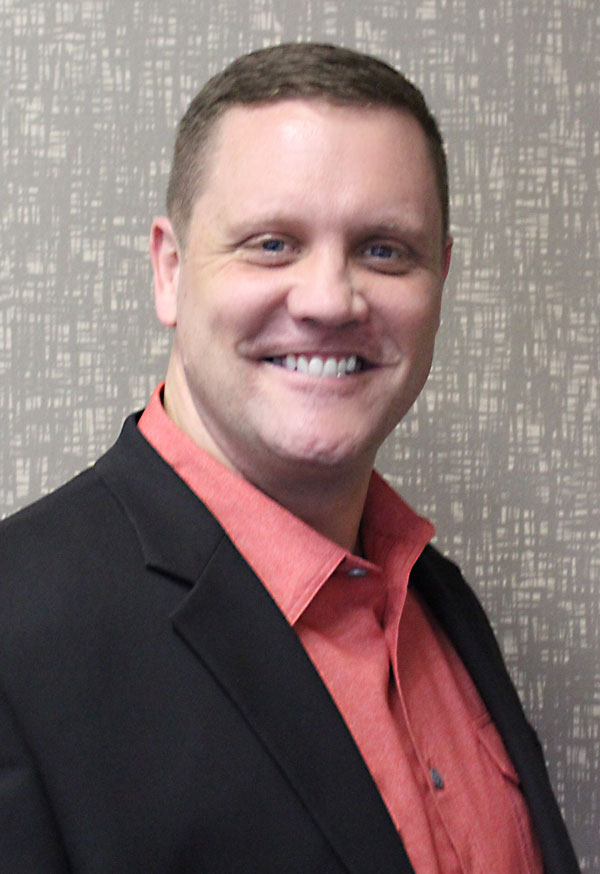By Josh Grimes
When life gets out of balance in any area, it causes an abundance of problems. However, when we get out of balance spiritually, it can be disastrous. Spiritual balance does not happen naturally; it can occur only through purposeful discipline!
God has called us to be and to make disciples of Christ, not just converts or believers (Matthew 28:19-20). Believers will believe as long as the belief fits their narrative, and converts will stay converted as long as it is convenient and not complicated. On the other hand, true disciples of Christ become new creations willing to die for their faith. Disciples are MADE, not born! It takes effort to become or to make a disciple.
Any habit of value must be a discipline before it becomes a delight. A great example of this is working out. At first, it is arduous. When you begin a physical routine, you become sore; you have to force yourself to do it. It takes lots of effort on your part for it to become a habit. But with continued discipline and time, the new routine adds health and value to your life, making it a delight. The same is true with spiritual disciplines. Spiritual discipline takes purposeful and dedicated effort on our part. It does not come naturally. But with time and dedication, spiritual discipline becomes a delight to our souls and adds tremendous value to our lives. True disciples of Christ value true discipline because they understand that with true discipline comes spiritual maturity.
For that reason, balance in the spiritual disciplines becomes imperative, and it is easy to get out of balance. The three main elements of our faith, meditating on the Word, praying, and worshiping, are not just required for us to grow and mature in our faith, they are essential to our faith itself. Balance with these three elements, or disciplines, of our faith is critical or we can become very unhealthy and even dangerous.
We will be drawn naturally to one or more of these elements than the others. One person might be drawn more to music, which would allow worship to be an easier discipline for them. Because of that, it would be more natural for them to focus all their attention on worship and thus neglect the other two disciplines of our faith. Someone else might be more drawn to learning, so the Word becomes of utmost importance to them. It would be easy for that person to give all their attention to the Word and neglect our faith’s other disciplines. Another person might be more drawn to experience because they love to experience things. It would be more natural for these people to give all their time to prayer and neglect the others. As you can see, it is easy to lean more toward one discipline. It is NOT a sin to have an affinity towards one discipline of our faith over another; it is natural. We are all made differently and will be drawn to different things. Yet we must work and discipline ourselves to remain in balance.
So what happens when we get out of balance?
This is something I have been meditating on for years, and I would like to share what I feel is a revelation from the Lord. Let’s look at the consequences of spiritual disciplines that are out of balance.
WorshiP:
Honoring God
Anything that exalts the Lord above all else humbles us and causes us to become more aware of Him (Psalm 100:1-5). We must remember, however, that music, instruments, and/or lyrics are not worship in and of themselves. They become worship only when we use them to worship, praise, and honor God, exalting Him above all others.
- When worship becomes the most important discipline and the others are neglected, you can get flaky, with your “head in the clouds.” The act of worship instead becomes more important than Whom you worship, the true God. This breeds worship of the worship and then becomes about entertainment. Be careful, as this can easily disguise itself as striving for excellence when it is just out-of-balance priorities. There is NOTHING wrong with excellence, but be certain that you are not neglecting our faith’s other elements and disciplines.
- When there is an insufficiency of true worship in your life, you can soon become unaware of God and His goodness around you. This causes ungratefulness, lack of reverence, and eventually, an absence of the fear of God altogether! A lack of true worship is more than a slippery slope; it is a sure way to lose your awe of God.
The WorD:
Discovering God
Reading the Bible, having devotions, listening to teaching/preaching, studying doctrine, getting the Word in you (Psalm 119:105).
- When meditating on the Word becomes the most important discipline and the others are neglected, you can quickly become legalistic, judgmental, and critical – one who is quick to point fingers at others. This can easily turn into a feeling of inadequacy or a sense of being unworthy because with time those fingers and critical attitudes get pointed back at you.
- When there is an insufficiency of the Word in your life, you remain shallow and immature. It causes a lack of faith, wandering, and spiritual drift. You cannot know the true voice of God if you do not understand the God of the Word.
Prayer:
Experiencing God
Petitions, meditation, waiting on and experiencing a move of God, such as a touch of the Spirit, along with fasting to heighten those experiences (Psalm 145:18).
- When prayer becomes the most important discipline and the others are neglected, you can quickly start to over-spiritualize everything. (For instance, you see a “devil behind every doorknob”; everything has a spiritual meaning.) This can develop over time into a grandiose complex with the feeling that “I have all the answers,” or “I am right, and everyone else is wrong.”
- When there is insufficient prayer in your life, it is easy to under-spiritualize things, stop hearing from God, and stop seeing or experiencing God (or a move of the Spirit) around you, which causes a lack of spiritual power and authority.
You can see how easy it is to get out of balance with our spiritual disciplines and the detrimental effects that imbalance has on our walk with God. Additionally, our lack of balance has unintended consequences for those around us as well. Balance in the elements and disciplines of our faith needs to be a significant priority in our walk with God. It is more than just important or imperative; it is CRITICAL for our growth, maturity, and fulfillment in our walk with God.
About the Author

Josh Grimes is the executive director for Open Bible’s East Region. He is a third-generation preacher who planted his first church in his early 20s. Though nestled in a very rural area, that church grew into a strong, healthy congregation that achieved county-wide influence. Pastor Josh went on to tackle a struggling church and nourished it back to fruitfulness. With a heart for pastors and the local church, Josh inspires others to greater levels of living and ministry. He loves spending time with family, studying the Bible, preaching, doing missionary work, wood whittling, hunting, and anything that could be fun!
Pastor Josh and his wife, Melissa, have two adult children, Hannah Joy and Caleb Joshua. Caleb and his wife, Alegra, are expecting their first child, making Josh and Melissa first-time grandparents! “Poppy” and “Lovey” are so excited!






